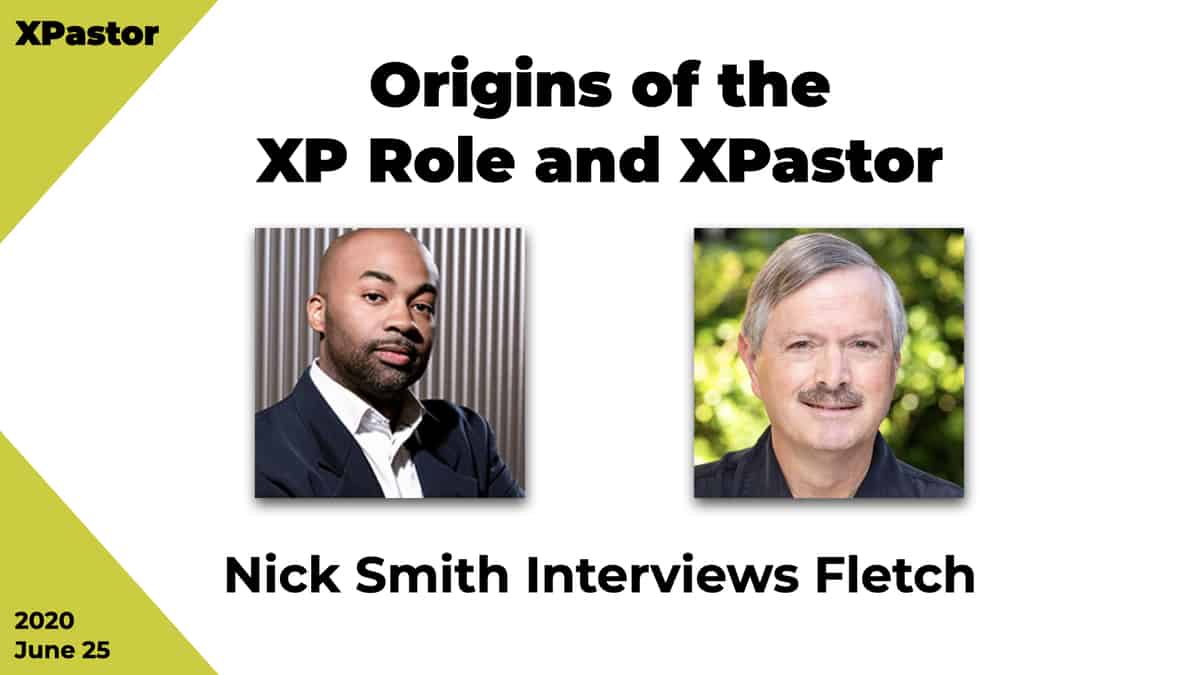A discussion of the role and function of the Executive Pastor would be incomplete without mentioning associated perils. This section will be especially helpful for any Senior Pastor, governing board or search committee seeking an Executive Pastor. Hans Finzel writes: “CEO’s, senior pastors, and founders place huge amounts of personal effort into building their corporations. It is an investment that is hard to let go of, much like letting go of children when they leave the nest.” Pastor James MacDonald tells of his realization of his own micromanaging:
Participants were promised anonymity and access to the full report (with no edits) in a large-group forum.
For three months we waited while he did the interviews and wrote his report.
But then I came to the section titled ‘Senior Management Style.’ There, before my eyes, were criticisms I could not dismiss: ‘There’s too much micromanaging going on,’ ‘More delegation is needed from the top,’ ‘The executive pastor is empowered to a certain extent, but the senior pastor has ultimate authority.’
The Executive Pastor may face a peril from a Senior Pastor who has given intellectual assent to let go of managing the organization, but has not effectively dealt with the emotional issues.
Change can be difficult, especially for the first Executive Pastor. It can be a challenge to inaugurate the role in a local church:
Who makes the biggest adjustments? Everyone has to make adjustments once this position is implemented. The Senior Pastors feel they have to make big adjustments in their work style with the staff. Senior Pastors tend to continue to over function in a supervisory type role with other staff during the transition period.
The staff has to adjust to working with an Executive Pastor as the team leader. Many long-term staff may say, ‘I came to work with the Senior Pastor not this person.’ The role of Executive Pastor requires strong but gentle leadership.
There can be expectations from the staff to be with the Senior Pastor and may resent the new Executive Pastor.
Another peril arises when sufficient responsibility and power is withheld from a newly installed Executive Pastor. In the third edition of the book by Kouzes and Posner, the authors are bluntly aware of this peril: “Leaders accept and act on the paradox of power: we become most powerful when we give our own power away. For example, the late Major General John Stanford told us that ‘we don’t get our power from our stars and our bars. We get power from the people we lead.'” The Senior Pastor and governing board will be more effective if they can delegate to the Executive Pastor. If the governing board and Senior Pastor are unable to “get power from the Executive Pastor that they lead,” then the position will fail. Returning to Hans Finzel, he presents many reasons why leaders can’t let go: job security, fear of retirement, love of the job, resistance to change, self-worth, lack of confidence in a successor, love for the people and loss of investment.
Just as the Executive Pastor must be able to delegate, so he must receive responsibility from the Senior Pastor and governing board. De Pree is speaking from his experience as Chairman of Herman-Miller when he writes, and due to its importance deserves to be block quoted:
While good delegation requires a form of dying, it is also the only way for leaders to stay alive.
Giving away power, delegating to another, can feel like dying. Yet by dying, one can have new life.
From the perspective of the Executive Pastor, there are perils as well. Wes Kiel notes:
The first set of experiences which need to be looked at are those attendant to the executive pastor’s relationship to the senior pastor. This set is first because it is these qualities more than any other which will determine whether or not the association between the two will have a chance to work. Leading the pack is: loyalty. This quality is clearly the most important to senior pastors but it is also cited frequently by executive pastors. The leadership of the senior pastor must be recognized, supported and implemented.
Kiel, from his research, is quite strong on the aspect of loyalty. He also has data about why an Executive Pastor may fail:
The reasons given for such failures by executive pastors had a great deal in common; as did those given by senior pastors.
The reasons given by senior pastors tended to cluster around competence and compatibility. The lack of competence was often attributed to the Peter Principle—promotion one step beyond ability. A person who had been very effective in a particular staff position seemed a logical person to promote to executive pastor.
A peril from the congregation can come in the form of denying the need for planning and efficient management. There is a balance in the nonprofit world between the human factors of a mostly volunteer organization and the efficiency required of paid ministers and support staff. Harris notes that: “Opposition to ‘bureaucratic’ forms in churches can be linked with perceptions that there is an irreconcilable dichotomy between ‘efficiency,’ ‘effectiveness,’ ‘rationality,’ planning and systematic procedures on the one hand, and religious or ‘spiritual’ values on the other hand.”
Another peril for the Executive Pastor is if trust breaks down between the Executive and Senior Pastors. In a taped dialogue sent to all Willow Creek Association members, Senior Pastor Bill Hybels and Executive Pastor Greg Hawkins cite trust as key to an effective partnership in ministry. Dave Travis comments: “What is the key issue to making this work? By our experience, the key issue is a high level of trust between the Senior Pastor and Executive Pastor. Those teams that don’t trust each other don’t last long. A key factor in trust building is constant, honest communication.” And later,
Do you seek a person within the organization or outside? The key issues are gifts and trust. We most often see that in an internal candidate. In some cases, the person may already be on the staff, have the gifts to serve as the leader, and have the trust of the Senior Pastor and Board. On many occasions the person is a lay member of the church with giftedness and the trust of the leadership to take on these responsibilities.
If a church goes outside the organization to find this person, make sure the gifts are there and there are seeds of trust. I have recommended that if a church is serious about an outside candidate, then the Senior Pastor and potential Executive Pastor spend several days together in a retreat, sharing their hearts, values and vision before any decision is made.
These scenarios assume that there was trust in the beginning of the relationship. On some occasions, this is not the case, as Wes Kiel writes:
In some cases the decision to employ an executive pastor has come at the suggestion or even the insistence of the governing board. If the resistance of the senior pastor to this change has been deeply rooted, then the early experience may well be unfavorable or at least uncomfortable.
One senior pastor gave as one of his reasons for eliminating the position of executive pastor the fact that the former senior pastor had the position forced on him by his board, resulting in an unhappy experience. Often the board has pushed such a proposition to save the senior pastor from burnout.
There are potential perils for the Executive Pastor. These can come from the Senior Pastor, the governing Board or congregation.
An interesting note from the convocation of Leadership Network Senior and Executive Pastors, as pertaining to trust with the Board: “The Board is also served in that many now feel they have a person to help carry out some of the functional work in the church. Most often both Senior Pastor and Executive Pastor attend Board meetings.”
View the footnotes and read the entire dissertation in PDF format: Dissertation











